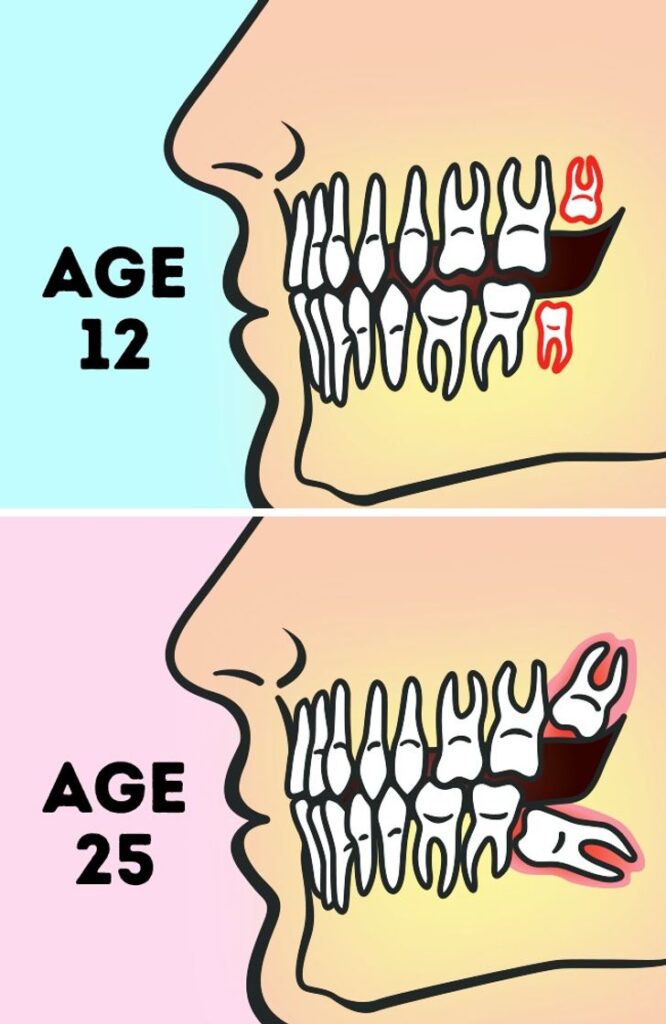For a long time, people needed their wisdom teeth for normal chewing. They appear between the ages of 12 and 25, and during that time, some doctors recommend removing them. But is it really necessary?
We analyzed different opinions on this topic. This is what you need to know to make the right decision.
When You Don’t Need To Remove Wisdom Teeth
- If they are healthy (there are no cavities, the gums that surround them are not inflamed).
- Fully erupted.
- Well located and without interfering with the normal functioning of neighboring teeth.
- They are easy to clean during daily oral hygiene.
When You Need To Remove Wisdom Teeth
The teeth are completely hidden under the gum, but cannot erupt. In that case, they can contribute to the formation of a cyst, which can destroy the roots of neighboring teeth.
The teeth did not fully explode. Difficulties with its hygiene and, consequently, a large accumulation of bacteria can lead to various diseases of the oral cavity.
If there is not enough room for one tooth (adjacent teeth are too tightly packed), the erupting wisdom tooth risks damaging neighboring teeth.
If you feel pain in the wisdom tooth area.
- The soft tissues near the wisdom tooth are often infected.
- Tumors are formed.
- There is inflammation of the gums.
- There are cavities in the adjacent teeth and they begin to break down.

There is nothing wrong with growing your wisdom teeth if you regularly visit the dentist and take x-rays of your jaw.
In this case, you may know in advance about a possible problem (improper growth of the wisdom tooth) and, to avoid it, have surgery to remove it.
Doctors recommend doing this as soon as possible because after you turn 25, all bone tissues are finally formed, making teeth more difficult to extract and tissues heal more slowly.
Preview photo credit depositphotos.com
Based on materials from usatoday.com, webmd.com, mayoclinic.org









